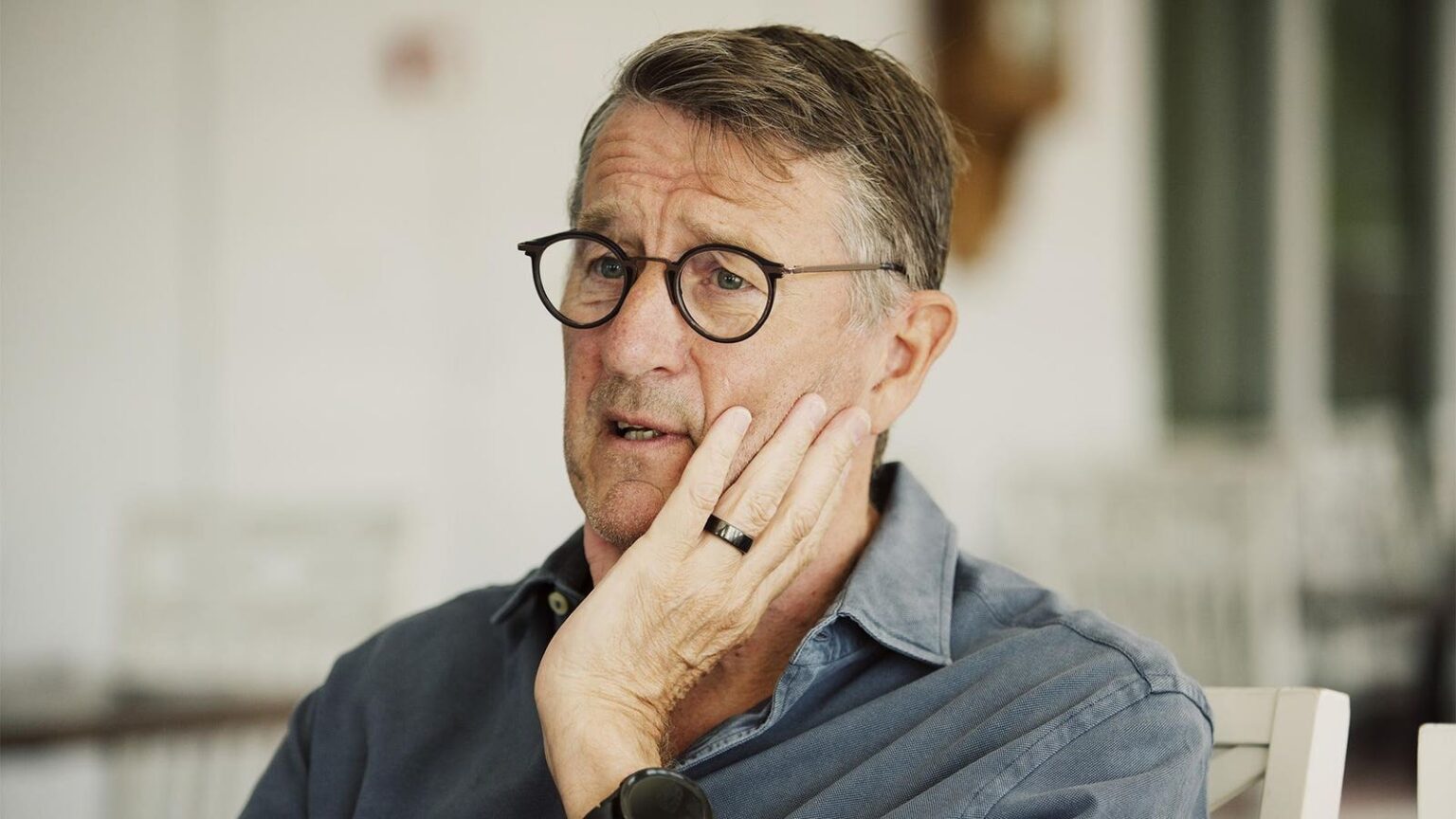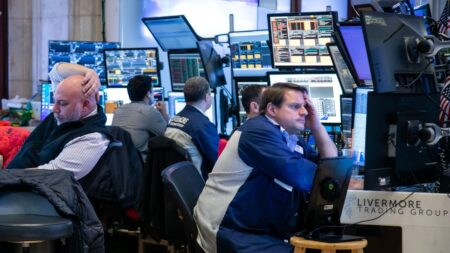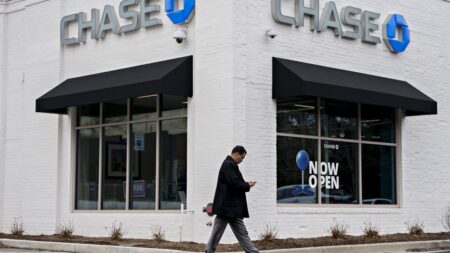Armed with $50 billion in dry powder, Swedish private equity firm EQT believes it can become the number one buyout firm in Asia and Europe, despite its lack of interest in the booming private credit business.
By Hank Tucker, Forbes Staff
Conni Jonsson grew up on a farm in rural Sweden milking cows and working the fields, expecting that he would study agricultural science at one of Stockholm’s top universities and ultimately expand his family’s operation. But when his mediocre test scores dashed those hopes, he settled for accounting and finance at the University of Linkoping, some 100 miles southwest of the Scandinavian capital.
It was a foreign environment for him, but Jonsson still credits his outsider’s perspective for much of the success that followed. Jonsson founded EQT in 1994 has built it into Europe’s largest private equity firm, now managing $248 billion in assets. Like other private equity founders, Jonsson is a billionaire himself, worth an estimated $1.7 billion. Today he still shows each new class of EQT analysts the same picture of himself at age 16, turning hay on his family’s tractor decades ago.
“I came from nowhere, so I couldn’t fail because I had nothing to fail from,” says Jonsson, emphasizing that adaptability and creativity have been his driving force. “I was more gutsy than others, and after a while I was confident enough to speak up and be honest and direct, while others were more polished.”
Jonsson, 64, who transitioned from CEO to chairperson in 2014 and still serves as a managing partner, now has grander ambitions than ever. Since EQT’s 2019 IPO, assets have grown sixfold, spurred by both fundraising and acquisitions. The firm bought Pennsylvania-based property developer Exeter Property Group in 2021 for $1.9 billion to expand its footprint in the U.S. and add to its real estate investing arm, primarily focused on industrial properties. In 2022, it acquired Baring Private Equity Asia, led by billionaire Jean Salata out of Hong Kong, for $7.5 billion. EQT is still looking for more opportunities to narrow the gap with America’s heavyweights like Blackstone and KKR.
“We should be number one in Asia, we should be number one in Europe and we should be in the top five in the U.S. in the areas where we invest,” insists Jonsson.
While large American private equity firms like Blackstone, Apollo and KKR were originally his inspiration, EQT now competes with them for deals. Jonsson’s journey to the top of Europe’s largest private equity firm started in 1987, three years after graduating from Linkoping, when he took a job as an equity researcher for Investor AB, the holding company for Sweden’s Wallenberg family, renowned bankers, industrialists and politicians dating back to the late 1800s. The Wallenbergs sent Jonsson to New York for a year in 1989 to work out of their New York office and build relationships with Wall Street. That was the year after KKR’s famous $31 billion buyout of RJR Nabisco, when corporate raiders and LBOs were the talk of the town. As much as possible, Jonsson immersed among Wall Street bankers and studied how established buyout firms Warburg Pincus and AEA Investors set up their businesses.
After returning to Sweden, he set about persuading his bosses to back a similar buyout-focused firm in Europe. The Wallenbergs are Sweden’s Rockefellers dating back to Andre Oscar Wallenberg’s founding of Stockholms Enskilda Bank in 1856. Their most famous family member was Raoul Wallenberg, an architect and diplomat, who saved thousands of Hungary’s Jews during World War II. Today, the Wallenbergs still own businesses through Investor AB, which has an $80 billion market capitalization and is majority owned by the family, with stakes in a wide-ranging portfolio of companies including AstraZeneca and Nasdaq.
Jonsson and Investor AB’s CEO Claes Dahlback pitched the idea of EQT to the family patriarch at the time, Peter Wallenberg, and despite some initial hesitancy, Investor AB agreed to spin out the firm with additional backing from AEA Investors and SEB. Investor AB still owns 15% of EQT’s stock, now worth about $5 billion.
EQT spent most of its first decade operating in Sweden and the Nordics before venturing into Germany. One of its first deals there was for Tognum, a manufacturer of heavy-duty diesel engines it bought from Daimler in 2006 for $1.9 billion in debt and equity, writing only about a $180 million equity check, according to exchange rates at the time. After just 16 months of overhauling the management team and modernizing the business, EQT took the company public in July 2007, raising $2.8 billion, and sold its remaining 22% stake back to Daimler in 2008 for $900 million. In the end, Jonsson and his partners made more than 15 times their money on the deal in two years.
“We started very slowly and methodically, but as time went by I was more and more impressed by Conni’s intuition, and when we bought Tognum he was bold enough to increase the price we were bidding at the end more than we expected,” says Dahlback, Jonsson’s mentor at Investor AB and an advisor on several of EQT’s funds. “That was one of the best deals EQT ever made.”
That success gave Jonsson confidence that EQT’s approach could work outside of Sweden, and the firm hasn’t stopped expanding or raising larger and larger funds. Its tenth flagship fund closed last year at $22.5 billion, and it’s targeting $12.5 billion for its next Asia fund, BPEA IX. Its earlier seventh and eighth flagship funds that are fully invested generated annualized returns around 20%, and its first five infrastructure funds have also posted net IRRs ranging from 11% to 22%.
It has its eye in particular on India, the world’s most populous country and fastest-growing major economy, where the public markets have been more active in recent years than in the U.S. and Europe. It exited IT services firm Coforge in 2023 for $2.2 billion, four years after acquiring it, and listed healthcare tech firm Sagility India Limited in a November IPO that raised $250 million.
“There’s a good future in Europe, and the U.S. as well, but it’s a more bright future, short to medium-term, in Asia,” says Jonsson. As of last June according to its midyear report, EQT is sitting on $50 billion in dry powder.
EQT AB’s shares, which are traded on Nasdaq Stockholm, gained 500% in their first two years on the market, but it shed half of its value in a bruising 2022. Its stock has since rebounded 43% but has lagged many private equity peers during that span, largely because EQT has shunned the boom in private credit that has propelled firms like Ares Management and Apollo. Blackstone has amassed $432 billion in credit assets, and credit specialists like Ares and Blue Owl have thrived in a high-interest rate environment offering attractive double-digit yields.
EQT has gone in the opposite direction, selling off its small credit business to Bridgepoint in 2020. Jonsson has no regrets and no desire to bring it back.
“If a company doesn’t perform and you’re a lender or a minority investor, you cannot do much about it,” says Jonsson. “We’re owners. We don’t buy paper, we buy companies.”
Borrowers are increasingly tapping private lenders rather than banks in search of flexibility and faster access to capital, with fewer regulatory guardrails than banks require, a trend Jonsson views with caution. Already the International Monetary Fund is calling for enhanced reporting requirements and sounding alarms about private credit funds’ illiquidity and dependence on insurers for fundraising.
“They buy insurance companies, and then they put their own funds in the asset management side,” says Jonsson, referring to firms like Apollo and KKR which own large insurers. “Is that a conflict? I would say likely, and the ones paying for it are the policyholders.”
It’s a stark warning for EQTs buyout firm competitors, most of whom have crowded into the largely unregulated $2 trillion private credit business. As farm boy Jonsson knows, chickens always come home to roost.
MORE FROM FORBES
Read the full article here
















